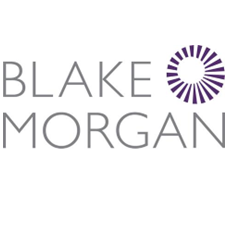Remote working and flexibility have reshaped the legal industry, creating new opportunities for lawyers. One of the most significant developments is the rise of fee-sharing law firms, an alternative business model that rivals traditional LLP structures. Firms like Gunnercooke, Keystone, Bexley Beaumont and Setfords are attracting top talent and major clients, offering lawyers autonomy, flexibility and the potential for higher earnings. Here’s what you need to know about this growing trend.
Fee-Sharing Law Firms: A Growing Trend in Legal Careers

Flexibility
A phrase that has become almost a buzzword in recent times, most law firms can now offer flexibility with some agile/remote working and often part-time hours. One of the main distinctions between that form of flexibility and the kind offered by a fee-sharing model is that you also have the flexibility of choosing how you work and when you work. For example, a partner within one of the fee-sharing firms we work with takes a month out to go skiing every winter, no questions asked.
Support
An often-held misconception of the fee-sharing model is that working for yourself on your own desk can be isolating, operating in “silos” with limited collaboration. The consensus that we have seen from partners in these models is that they find themselves referring work throughout the business as required and get to know the other partners well. Gunnercooke, as an example, held over 150 virtual events and ran a successful “Coffee Roulette” programme throughout 2020, where partners would be randomly assigned another Partner to have a coffee with over video chat.
On a professional level, partners are given expert business development coaching, offered immediate help with bringing their clients over, have access to a “pool” of associates (or can hire their own) and back-office support.
Many of these firms have also established offices in major cities, with further plans to expand. Those who prefer to meet their colleagues face-to-face will (hopefully) once again be able to do so.
Escape From “Bureaucracy” and “Internal Politics”
One regular reason offered for why many partners decide to make the move from a traditional law firm is to avoid the bureaucracy of having to get approval/sign off to develop their ‘business’ in a certain direction and to avoid the hierarchy of some firms, where internal politics take up a lot of time.
Some tell us that although they are consistently successful, they are increasingly dissatisfied with the constant and increasing billing pressure. In some cases, partners who experience an excellent year of billing will then be put under further pressure to do even better the next year, often facing remuneration committees and being required to justify their billings. As a self-employed “consultant”, the onus is on the partner to self-motivate and the pressure comes from within.
Client Satisfaction
In the case of some partners, who had taken a step back from regular client contact in favour of managing their departments and training juniors, a self-employed model allows them to deal with their clients directly again. With that comes a great deal of satisfaction for clients, with more regular contact as well as satisfaction and enjoyment for the partner. Gunnercooke, for example, has achieved a Net Promoter Score (NPS) of 90, which is among the highest of law firms around the country.
(NPS is the percentage of customers rating their likelihood to recommend a company, a product, or a service to a friend or colleague).
Conclusion
Even with the above in consideration, making the move from a fairly secure situation as a salaried partner within a top law firm to the relative uncertainty of client fees making up your entire income, is no doubt a daunting prospect. To make the leap, it does require a great deal of confidence in yourself and your client following. However, if this is the case, the reward can definitely outweigh the risk, when coupled with the right attitude and excellent support. There are many examples to demonstrate this as the new fee-sharing model is working so well for so many.
If you're a lawyer who is interested in exploring fee-sharing opportunities, whether a partner, senior associate or with a strong client network, please contact us today. The team is available to answer questions confidentially and, where appropriate, arrange introductions to help professionals learn more about the options available.















